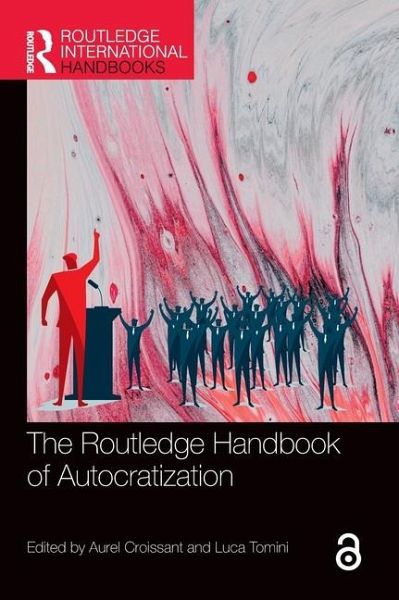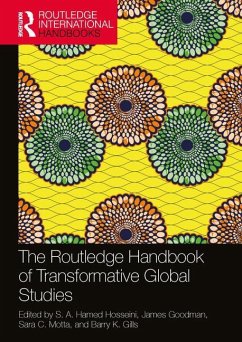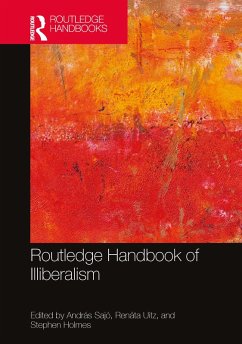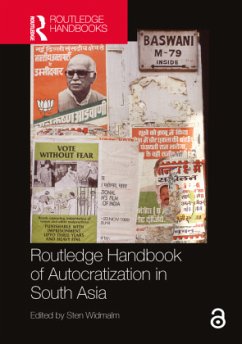
The Routledge Handbook of Autocratization
Versandkostenfrei!
Versandfertig in 6-10 Tagen
246,99 €
inkl. MwSt.
Weitere Ausgaben:

PAYBACK Punkte
123 °P sammeln!
The Routledge Handbook of Autocratization comprehensively and systematically explores the current understanding, and unchartered research paths, of autocratization.With wide-reaching regional coverage and expert analysis from Asia, North and South America, Europa, the Middle East, and North Africa, this handbook reveals cross-country, and cross-regional, analysis and insights and presents in-depth explanations and consequences of autocratization. Arranged in five thematic parts, chapters explore the basic aspects of conceptualization, theorization, and measurement of autocratization; the role ...
The Routledge Handbook of Autocratization comprehensively and systematically explores the current understanding, and unchartered research paths, of autocratization.
With wide-reaching regional coverage and expert analysis from Asia, North and South America, Europa, the Middle East, and North Africa, this handbook reveals cross-country, and cross-regional, analysis and insights and presents in-depth explanations and consequences of autocratization. Arranged in five thematic parts, chapters explore the basic aspects of conceptualization, theorization, and measurement of autocratization; the role of various political and non-political actors as perpetrators, supporters, bystanders, or defenders of democracy against autocratization processes; and the consequences across various policy fields. Showcasing cutting-edge research developments, the handbook illustrates the deeply complex nature of the field, examining important topics in need of renewed consideration at a time of growing concerns for democracy and the global spread of authoritarian challenges to democracy.
The Routledge Handbook of Autocratization will be a key reference for those interested in, and studying authoritarianism, democratization, human rights, governance, democracy and more broadly comparative politics, and regional/area studies.
Chapter 2 and Chapter 11 of this book is freely available as a downloadable Open Access PDF at http://www.taylorfrancis.com under a Creative Commons Attribution-Non Commercial-No Derivatives (CC-BY-NC-ND) 4.0 International license (chapter 2) and Creative Commons Attribution (CC-BY) 4.0 International license (Chapter 11).
With wide-reaching regional coverage and expert analysis from Asia, North and South America, Europa, the Middle East, and North Africa, this handbook reveals cross-country, and cross-regional, analysis and insights and presents in-depth explanations and consequences of autocratization. Arranged in five thematic parts, chapters explore the basic aspects of conceptualization, theorization, and measurement of autocratization; the role of various political and non-political actors as perpetrators, supporters, bystanders, or defenders of democracy against autocratization processes; and the consequences across various policy fields. Showcasing cutting-edge research developments, the handbook illustrates the deeply complex nature of the field, examining important topics in need of renewed consideration at a time of growing concerns for democracy and the global spread of authoritarian challenges to democracy.
The Routledge Handbook of Autocratization will be a key reference for those interested in, and studying authoritarianism, democratization, human rights, governance, democracy and more broadly comparative politics, and regional/area studies.
Chapter 2 and Chapter 11 of this book is freely available as a downloadable Open Access PDF at http://www.taylorfrancis.com under a Creative Commons Attribution-Non Commercial-No Derivatives (CC-BY-NC-ND) 4.0 International license (chapter 2) and Creative Commons Attribution (CC-BY) 4.0 International license (Chapter 11).














